by Nathaniel R
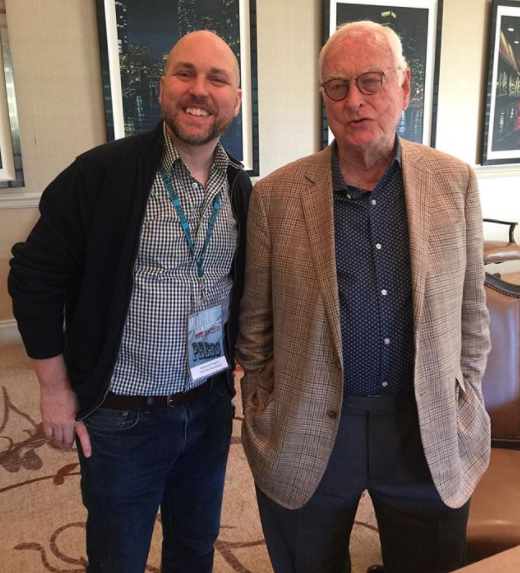 Highlight of 2017: Meeting one of my true gay heroes, James Ivory.
Highlight of 2017: Meeting one of my true gay heroes, James Ivory.
They say you should never meet your heroes. But "they" haven't met James Ivory. The legendary director, currently nominated for Best Adapted Screenplay at the Oscars for Call Me By Your Name (2017) is 89 years old but you wouldn't know it. He's sharp and talented and thoughtful as ever. It's his fourth nomination in a rich career that extends way back to the late 1950s though he's best know for the popular costume dramas he made in the 1980s and 1990s with his producer and life partner, the late Ismail Merchant (1936-2005).
I had the pleasure of meeting with Ivory at the Middleburg Film Festival earlier this season. I didn't quite intend to begin gushing but it couldn't be helped. He was deeply formative in my life, one of the first two or three directors that made me fall in love with the medium that became my whole life. I groused about his lack of an Honorary Oscar and I eagerly told him about a couple particularly memorable trips to see his movies with my parents. He shared a few amusing stories he's heard from other fans. Then we settled in for our discussion of his rich career, the restoration of some of his films, and Call me By Your Name. Our interview is after the jump...
NATHANIEL: So I've geeked out enough. When you were young, who or what was formative for you?
JAMES IVORY: I always loved going to the movies. I was a great moviegoer as a kid. My parents didn’t keep me from doing that. I could see any movie I wanted to though I do remember being taken out of Gunga Din when I was five years old because they thought it was too violent. But apart from that I was always allowed to go.
I never thought about directing movies or making movies as such. I was interested in becoming an art director. I’ve always been inspired by architecture and scenic design. When I was about 16 there was a very good modern architect doing revisions on our house in Oregon. I got up the nerve to ask him. 'I want to be a set designer. What would be the best way about it?' He said 'go to architectural school.' So I did. I didn’t even know what a director did [at the time].
Sure.
But as for people who really changed my life — my life was already going in a certain direction. But of course Ismail Merchant was the person who absolutely, utterly changed my life. I was making documentaries at the time. He wanted to make a feature.
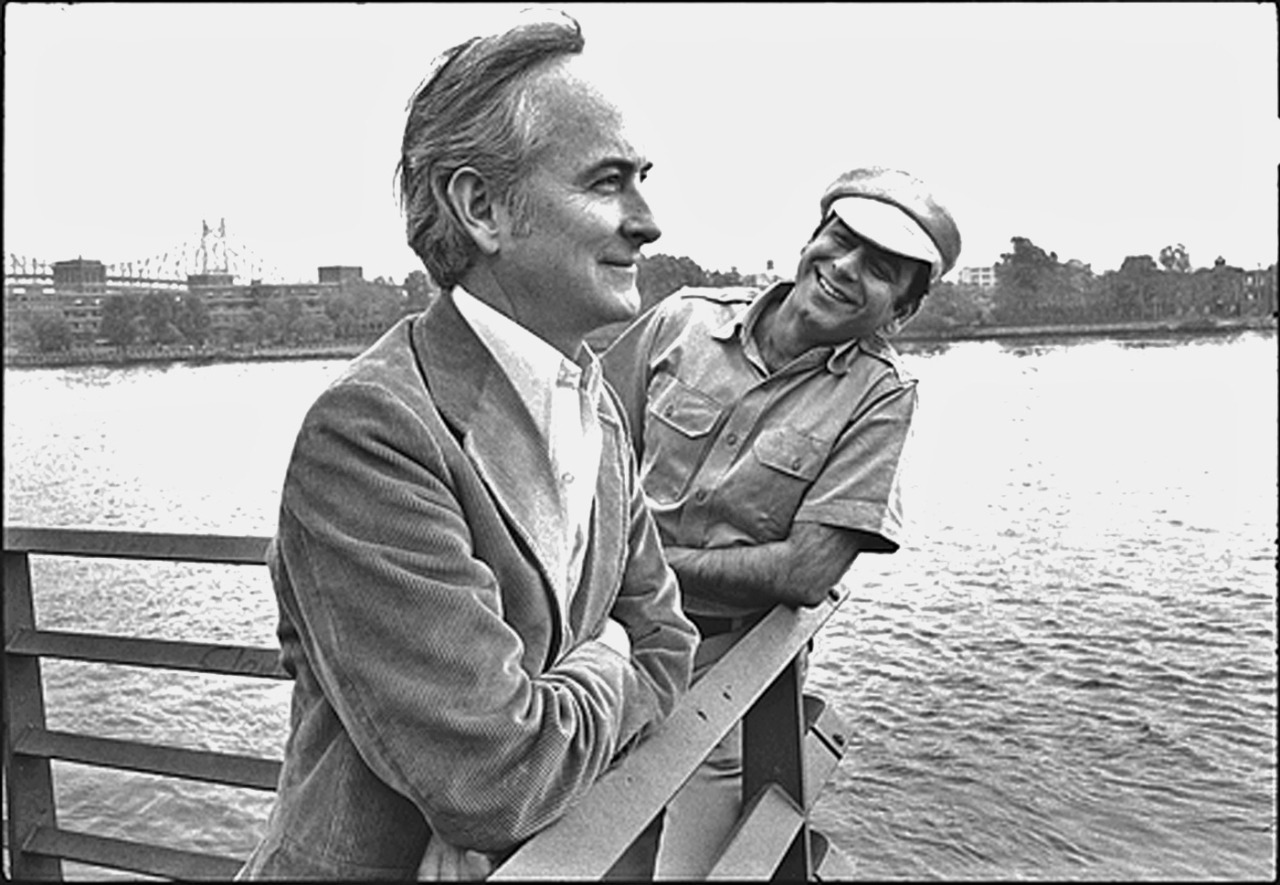 James Ivory and Ismail Merchant in Manhattan in 1975. They'd been together since the early 1960s. Photographed by Mary Ellen Mark
James Ivory and Ismail Merchant in Manhattan in 1975. They'd been together since the early 1960s. Photographed by Mary Ellen Mark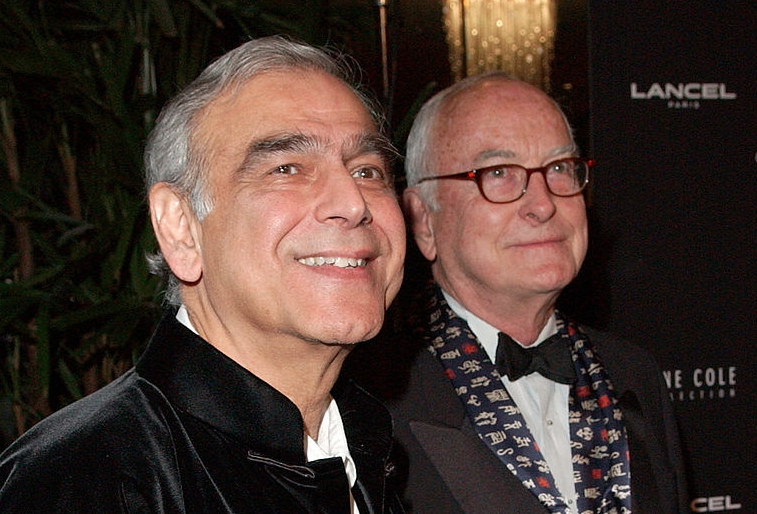 In 2005, a few months before Merchant's death
In 2005, a few months before Merchant's death
And the rest is movie history. You had a famously long career together and you were also romantic partners. Was that difficult to have your work and personal life be so intertwined?
It seemed very natural to me. We both wanted the same thing. We both wanted to make our films whatever those were. He was very loyal to me in the sense of what I wanted to do -- he never said “I don’t want to make that.” Often in fact, I went along with what he wanted to make. I had no particular desire, really, to go to China -- The White Countess in Shanghai. But Ismail was determined to do that. So he led the way in certain projects.
And other times it was your idea.
And other times it was me pushing it. Once in a while it was Ruth [Ruth Prawer Jhabvala, who wrote their films.] It was Ruth who urged us to make Howards End.
A masterpiece. In the 80s when your films were reaching a new level of success I was a young budding movie nut and I didn’t even realize you and Ismail were two people. I thought “Oooh, I like this Merchant Ivory guy” — I thought it was a first and last name.
[Laughs]
Your films became so successful that “Merchant Ivory” became short-hand for a kind of movie Literary Adaptations / Costumes Dramas.
Particularly if it had something to do with the English.
Was that irritating?
It became irritating. Because often those films that people thought were our films, I didn’t like them. That’s rather vain, I suppose, to say that. But that was my feeling.
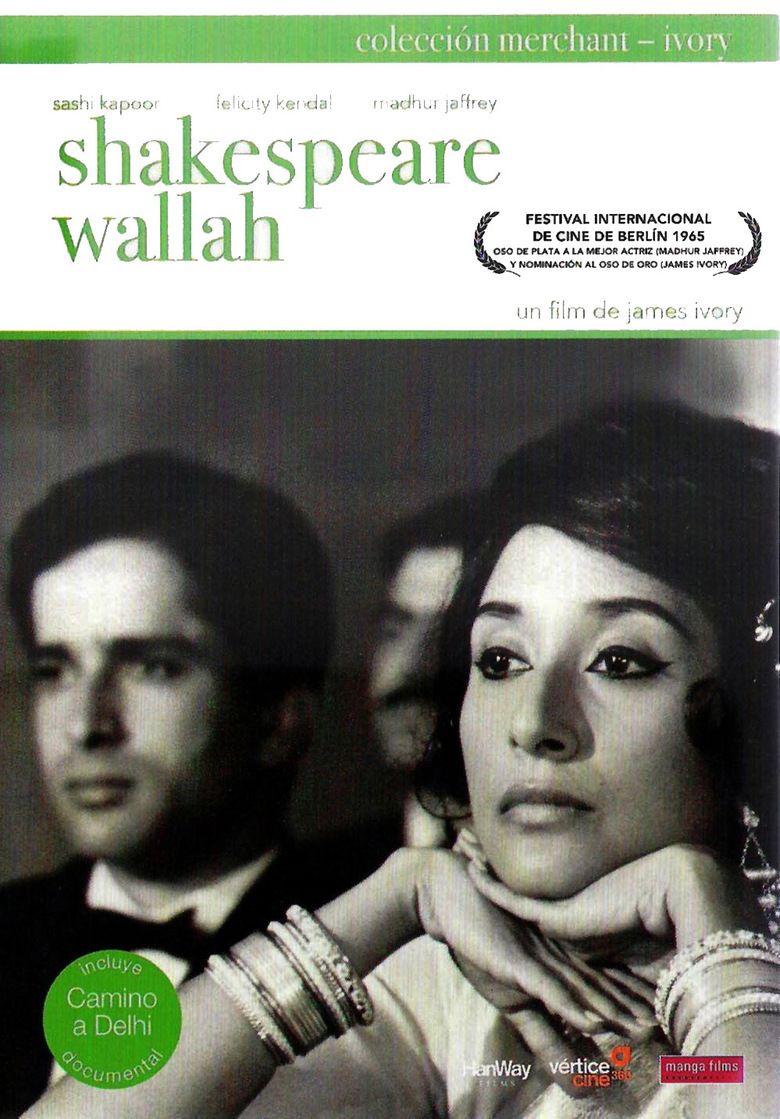 Their first hit, Shakespeare Wallah (1965)Anytime anybody becomes influential that happens a bit.
Their first hit, Shakespeare Wallah (1965)Anytime anybody becomes influential that happens a bit.
Exactly. It was unfortunate because we had made all kinds of films. We made a lot of contemporary films and original stories and they weren’t adaptations. Those weren’t especially successful. But in the beginning Shakespeare-Wallah , which was not an adaptation, was a success. The films we made in the States, like Roseland — nobody remembers that — were original.
Now the Cohen Film Group bought all of your movies to restore, correct?
No. They bought the movies that we owned entirely. We half-owned other movies. They’re doing the restorations of the ones they bought. It’s called “The Merchant Ivory Library” which consisted of films we entirely owned.
So it won’t be a complete box set but it will still be a treasure!
Some of the films that have disappeared like Mr and Mrs Bridge. I wish that would come back. I think it’s one of our best films.
As you're getting on in years — I don't want to sound insensitive -- but with Ismail gone, do certain films take on more resonance or are harder to watch?
Not necessarily. But The White Countess. It was the last film that Ismail actually produced. It’s a painful film for that reason.
You’ve worked with several actors multiple times. Do you invite them back because it’s like a company of players and you know they’ll deliver.
No, it’s basically because they’re right for certain parts.
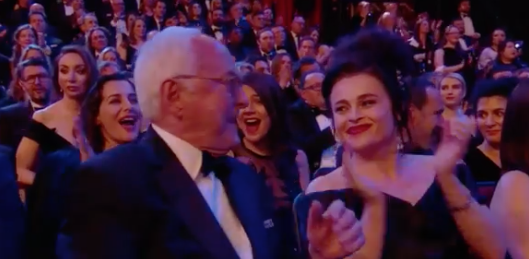 Helena Bonham Carter cheering on James Ivory at the BAFTAs this season where he won for Adapted Screenplay
Helena Bonham Carter cheering on James Ivory at the BAFTAs this season where he won for Adapted Screenplay
Your films made Helena Bonham Carter famous. But her image now — younger audiences would be really surprised about her origins in the 1980s. Her persona is just so far removed from her star-making image.
I know.
Was she always kind of, the way we see her now. So eccentric. Even at 18 making A Room With a View.
Definitely! For sure. From the first day. Personally she’s very much herself. She has this extraordinary wardrobe. Every day it's different. It’s almost as if she’s in costume!
Now Call Me By Your Name. It’s set in Italy so it’s almost like a through line to some of your earlier films.
Right.
But it’s your first queer film since Maurice!
Well The Bostonians... but, yes, that was before Maurice. But you know, there have been queer characters from the very first film. Autobiography of a Princess is a good example. James Mason played this secretary to a Maharajah who he fell in love with. That is one of our best films. Of all our Indian films, that’s the deepest. And it's only 50 minutes long.
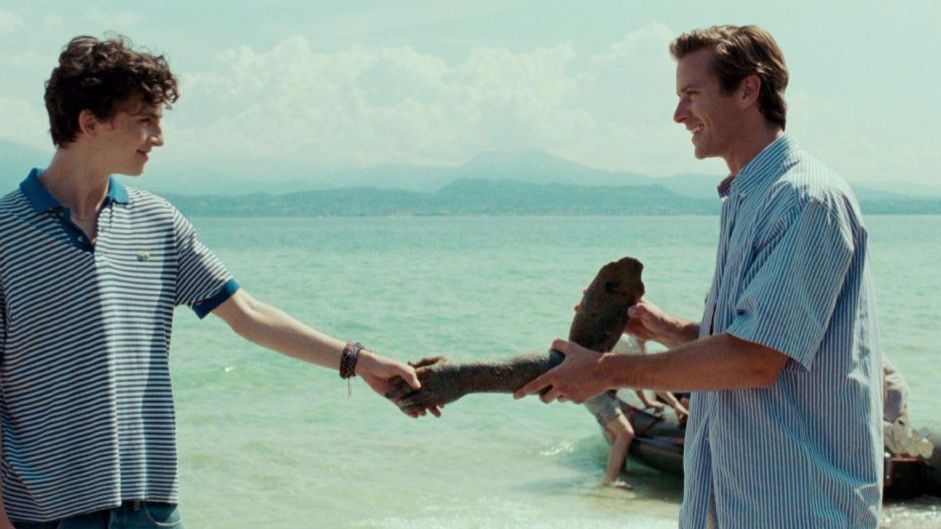
Originally you were thinking of directing Call Me By Your Name but you ended up only writing it. Since you're a director and your films are so beautiful and cinematic, were you thinking of the potential imagery of this love story while writing?
Occasionally. The whole business of the statue, for example, I had to think up because it’s not in the book.
Had you seen Luca Guadagnino's films before working on this?
I had seen I Am Love but the film that impressed me was A Bigger Splash. I was on the set in Sicily. I was around a lot when he was in the editing room.
Oh you were already working on Call Me...
Yes.
So were you on the set for this one?
No. No, that would slow things down. If you had two directors -- suddenly you're discussing something on a film so tight for money and time! It was a practical decision.
 So, in your screenplay you make a major cut from the novel. The epilogue is gone... it's such a big thing in the book but I think your ending is smarter. Was that something you went back and forth on?
So, in your screenplay you make a major cut from the novel. The epilogue is gone... it's such a big thing in the book but I think your ending is smarter. Was that something you went back and forth on?
Not at all. I decided that straight away. I thought 'we can’t have that!' Timothée was always there from the beginning. He was 18 at the time. I thought 'there is no way we can have that boy be 40 years old.' And I think that’s a mess when you have two different actors play the same character. That always bothers me.
I thought the book ended on a downbeat but I don’t think it’s okay for a movie. As you read the novel you’re hoping they end up together, which you probably shouldn't.
The climactic scene with the father. Every gay person I know is obsessed and moved by that scene. In some ways it's a fantasy because who has parent that open-minded? Were you worried it would be a hard moment to pull off, so quiet and, in its peculiar way, high-wire for an actor.
Well, it’s quiet in the book, the tone was set by the book. It didn’t worry me. I assumed they'd get a good actor.
Ha! Yeah, that Michael Stuhlbarg is okay. Soooo, you've been nominated a bunch of times for the Oscar --I'm mad you haven't won yet. Do you like the Oscars?
Sure! I always watch... just like you watch elections.
